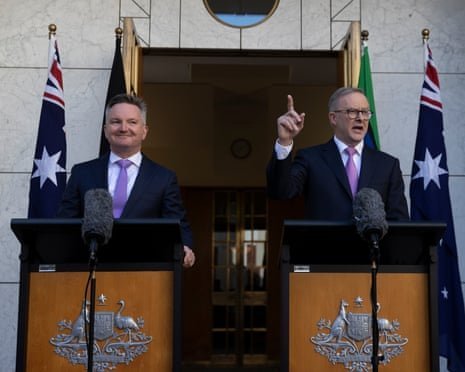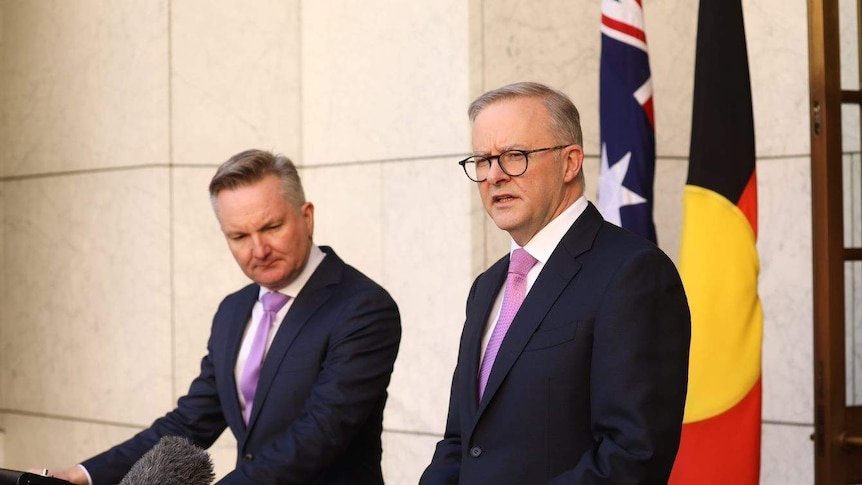Australia on Brink of Climate Target Decision: Albanese Faces Mounting Pressure to Commit to Ambitious Emissions Reduction
- Prime Minister Anthony Albanese set to announce 2035 climate target, but will he heed the Climate Change Authority’s advice?
- A growing group of Labor MPs urges the government to adopt a target within the authority’s recommended range of 65-75% emissions reduction
- Business groups warn that a target above 70% could risk hundreds of billions of dollars in exports, while climate activists push for a more ambitious goal
As the world watches, Australia is on the cusp of making a crucial decision on its 2035 climate target. Prime Minister Anthony Albanese is set to announce the government’s plan, but the question on everyone’s mind is: will he commit to the ambitious emissions reduction recommended by the Climate Change Authority?
A growing cross-factional group within Labor is urging the government to adopt a target within the authority’s recommended range of 65-75% emissions reduction. This group, comprising MPs from the left and right factions, including some recently elected to parliament, is pushing for a more ambitious goal.
However, Albanese is tempering expectations, emphasizing that the government will commit to a target that is “achievable” and takes into account the need for energy reliability and transition. He has also welcomed a report by the Business Council of Australia, which warned that a target above 70% could risk hundreds of billions of dollars in exports.
Climate activists, on the other hand, are pushing for a more ambitious goal, arguing that the 2035 target should be at least in the 70s to align with the country’s commitment to reach net zero in 10 years.

The Climate Change Authority, chaired by Matt Kean, is expected to hand down its advice on the 2035 target any day now. The government will then hold a cabinet meeting to make a decision, which is expected to be announced before Albanese flies to New York for the UN General Assembly.
Australia’s climate target is a critical issue, with the country’s Pacific allies urging greater ambition on emissions reduction. The government’s decision will have significant implications for the country’s climate policy and its commitment to reducing greenhouse gas emissions.

